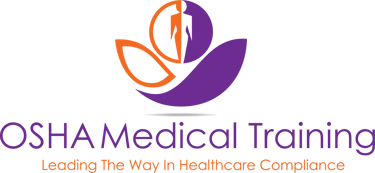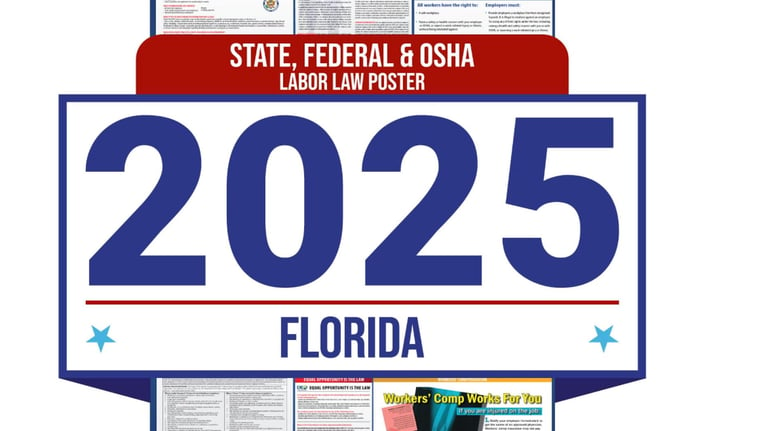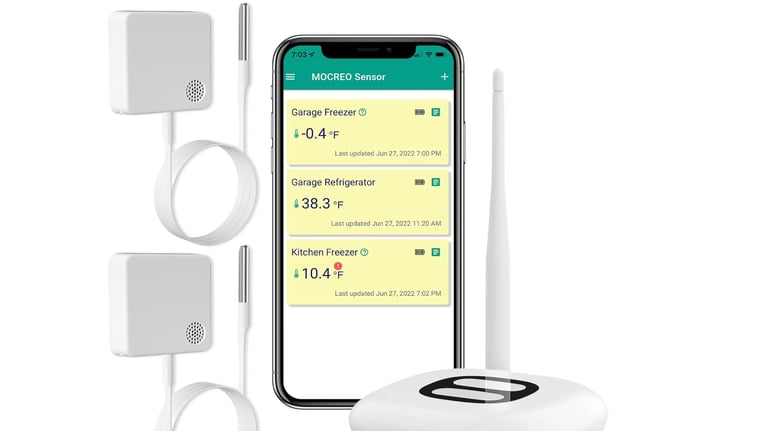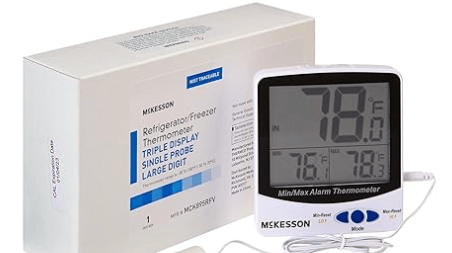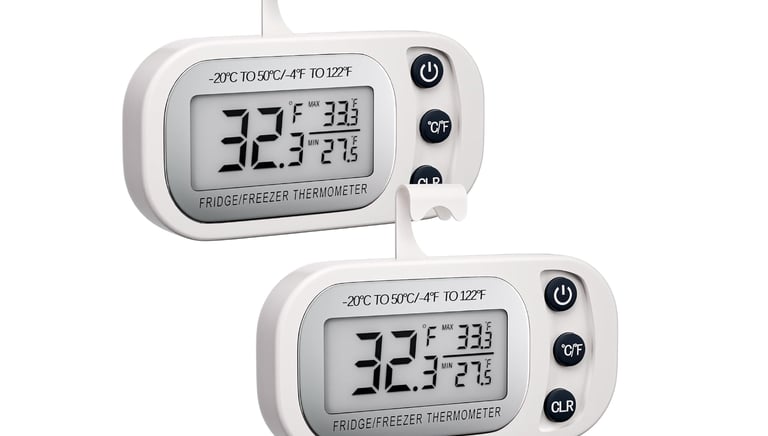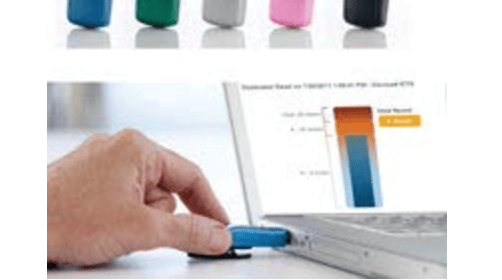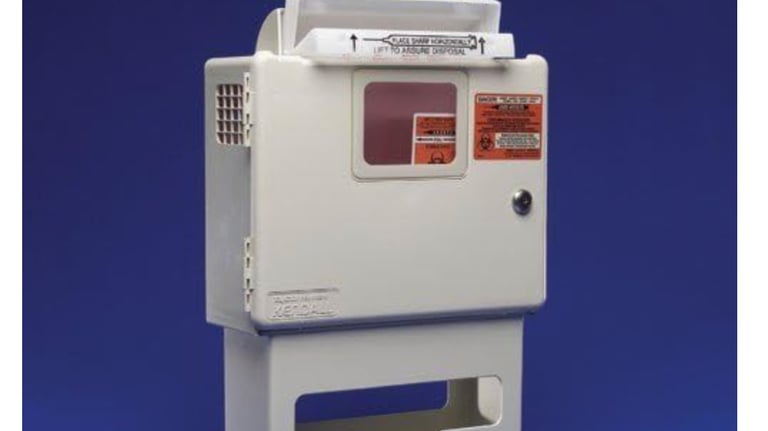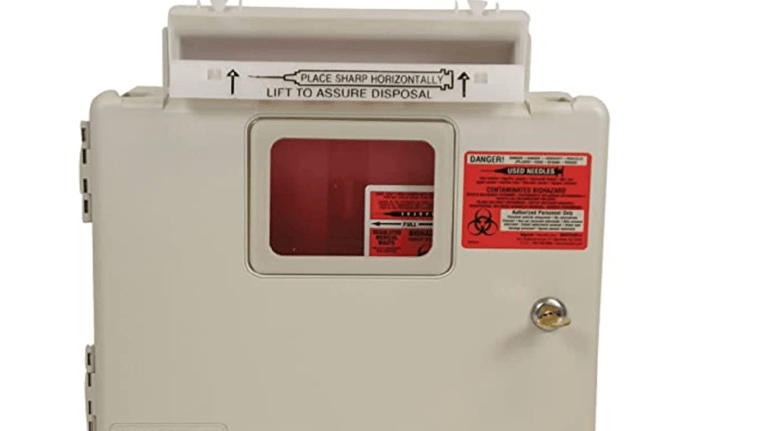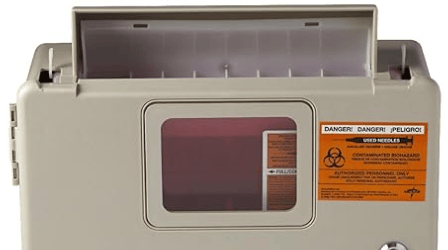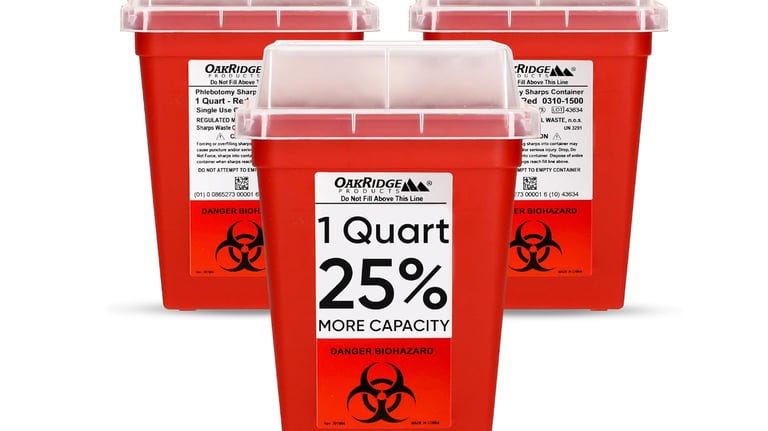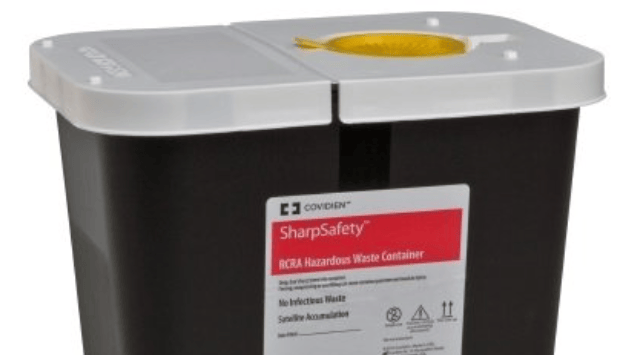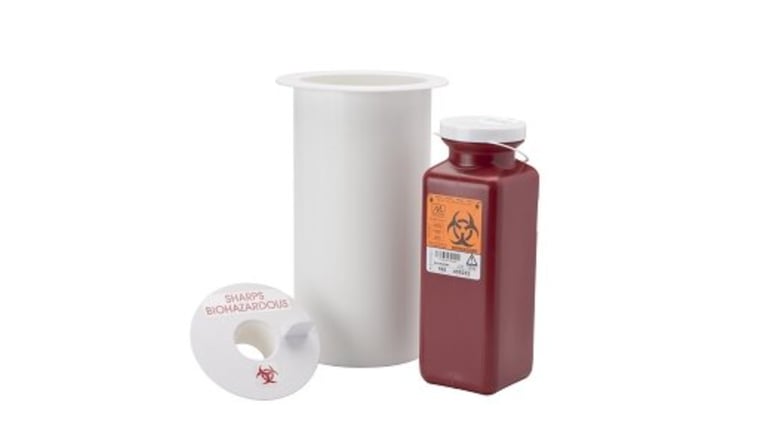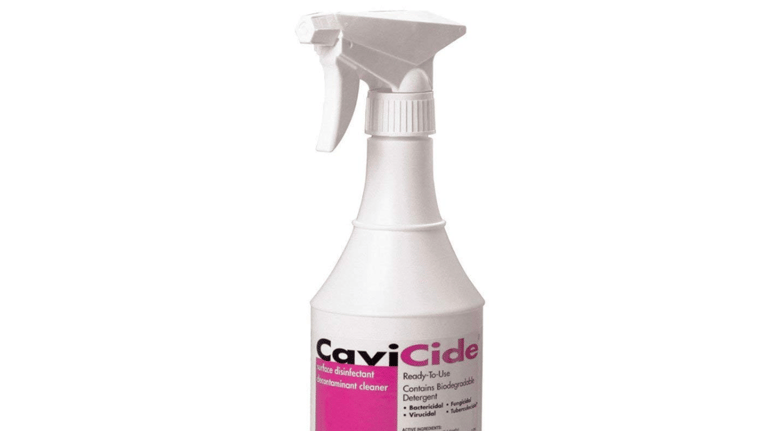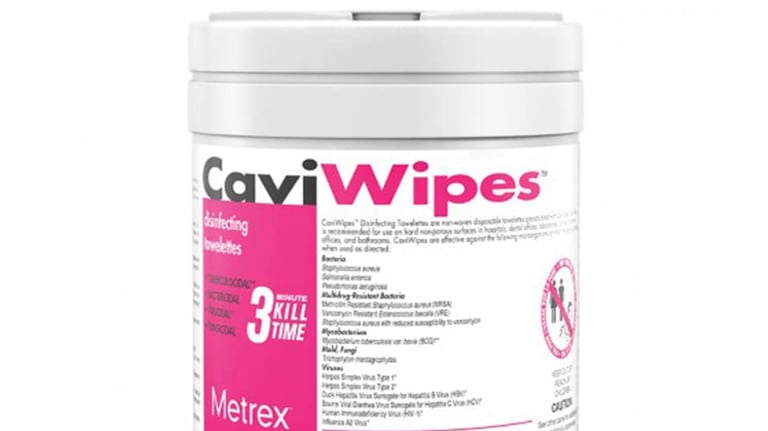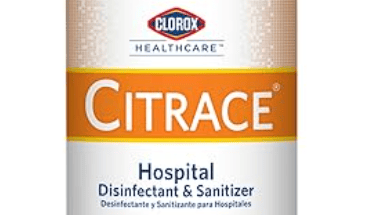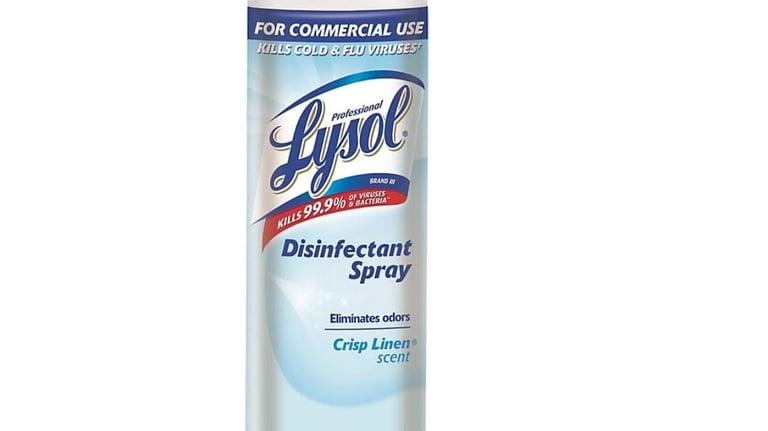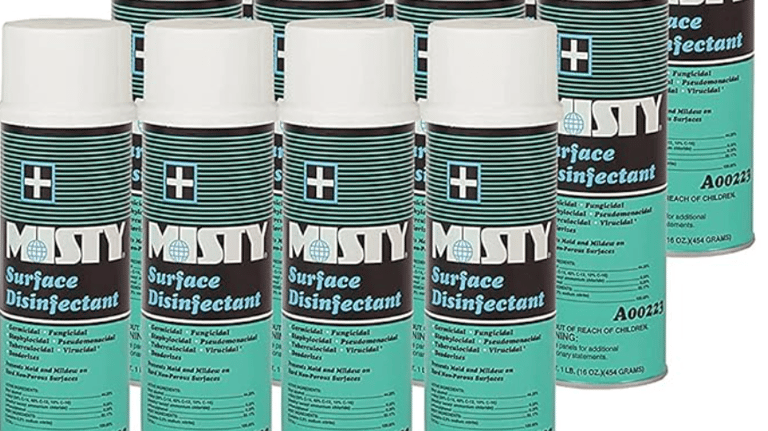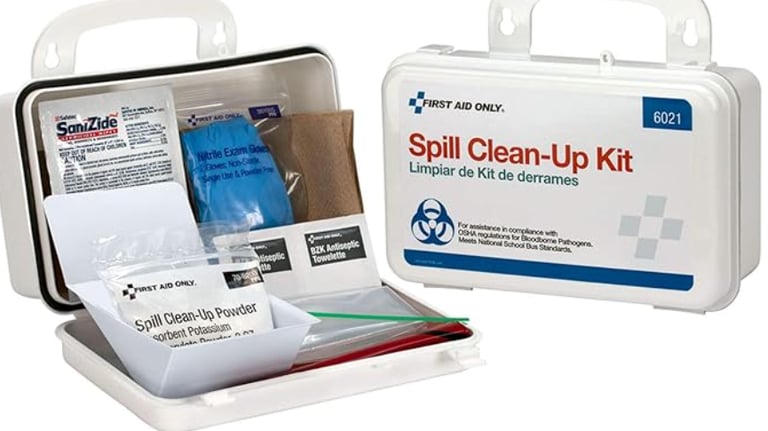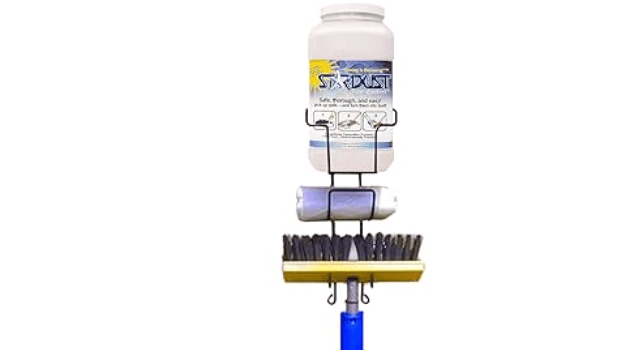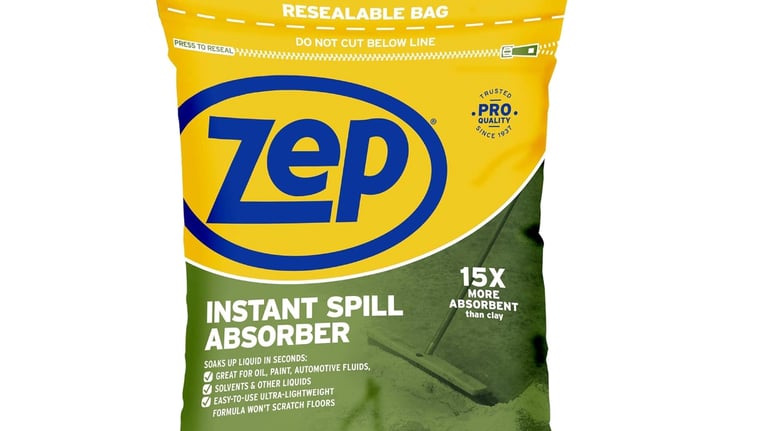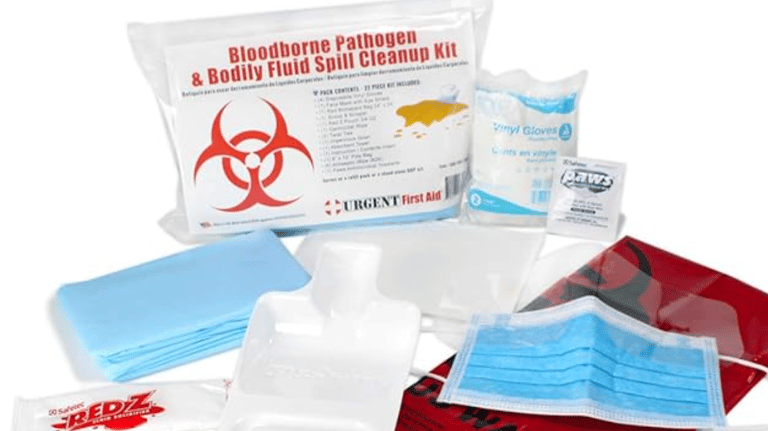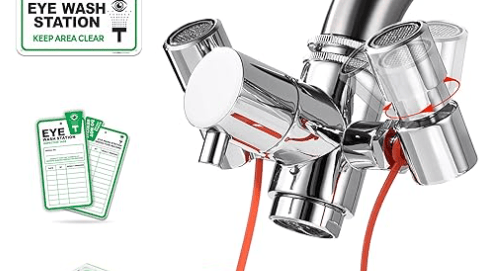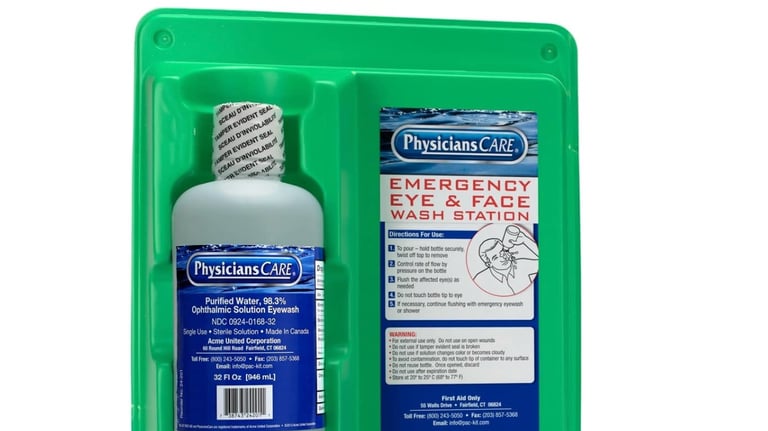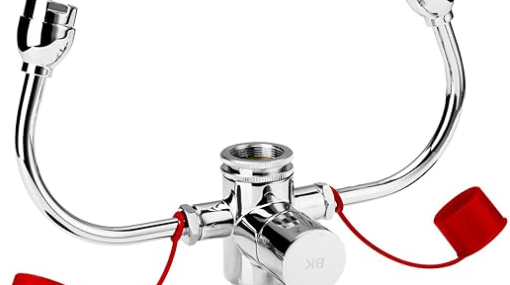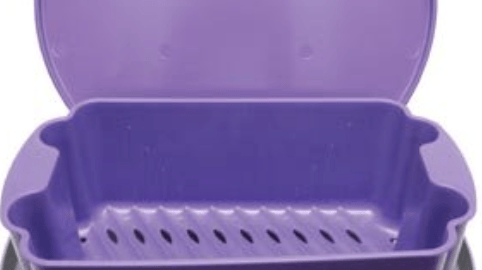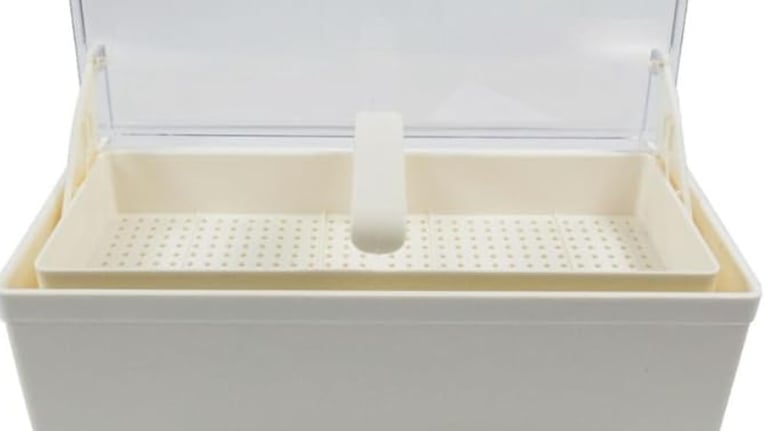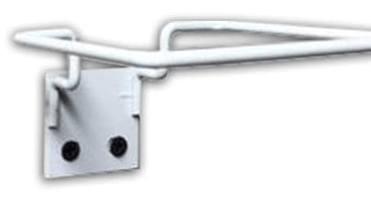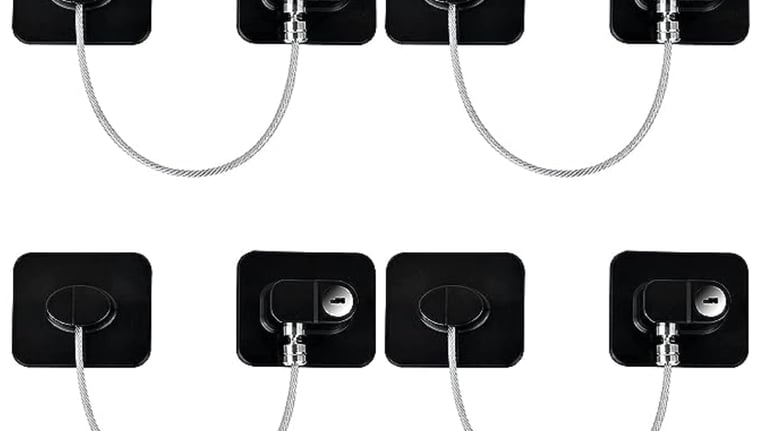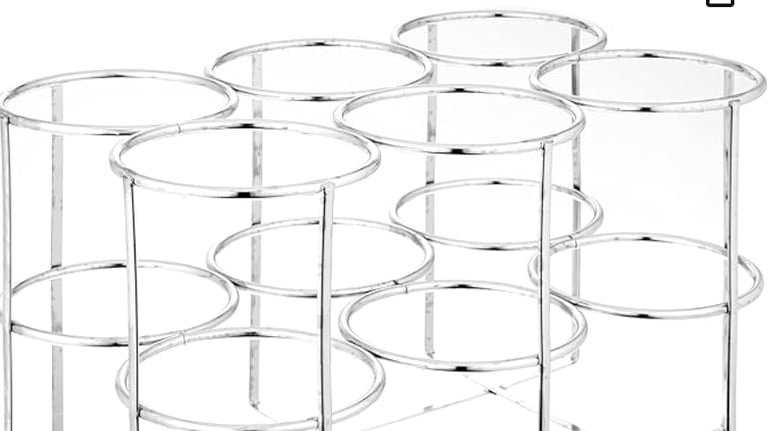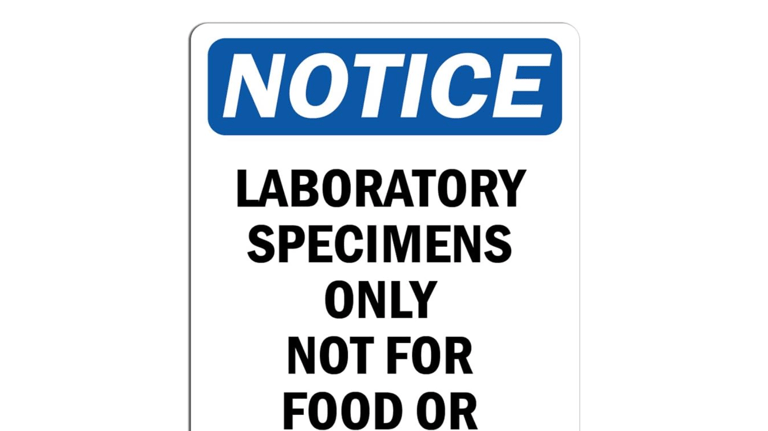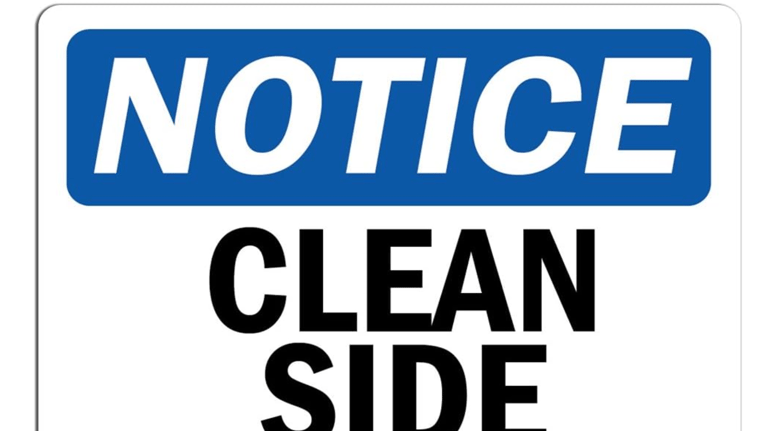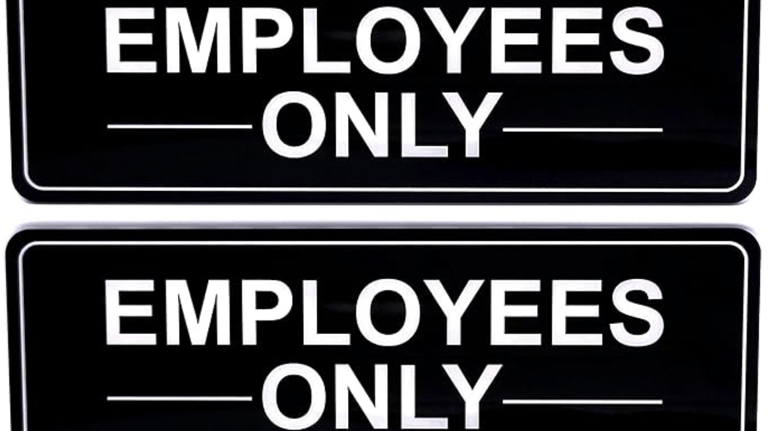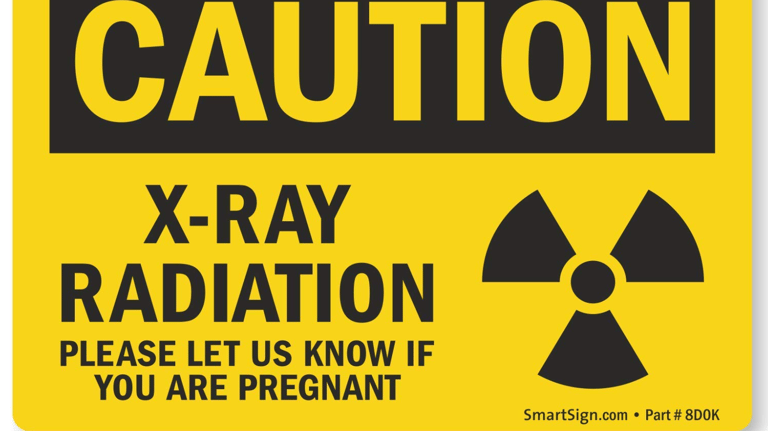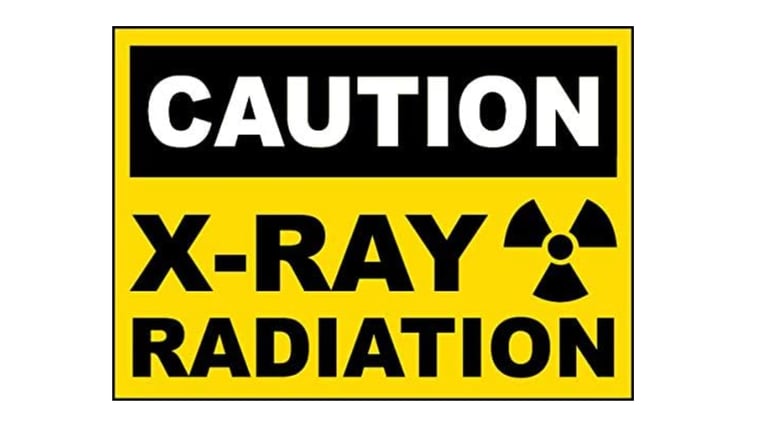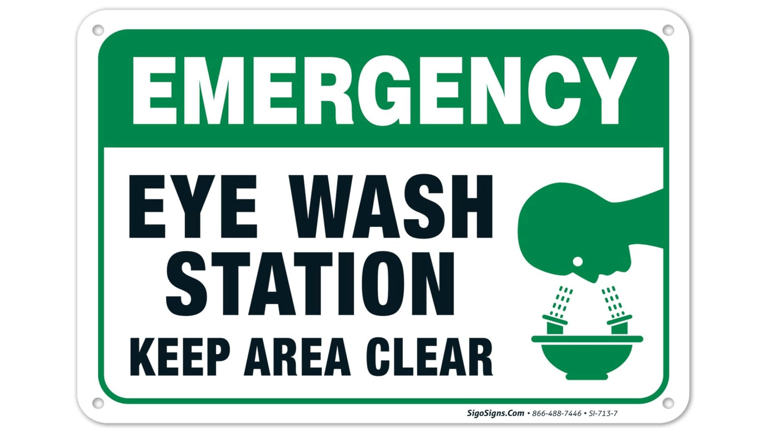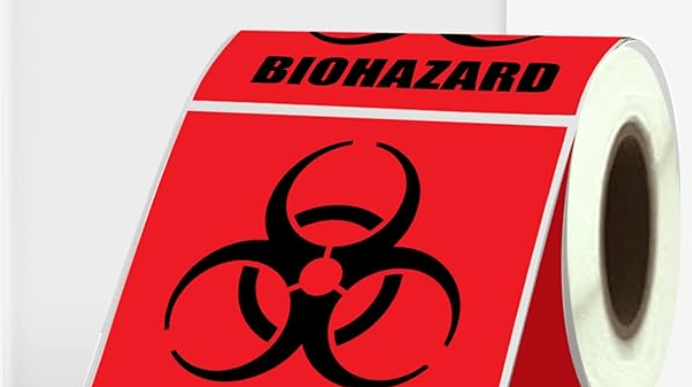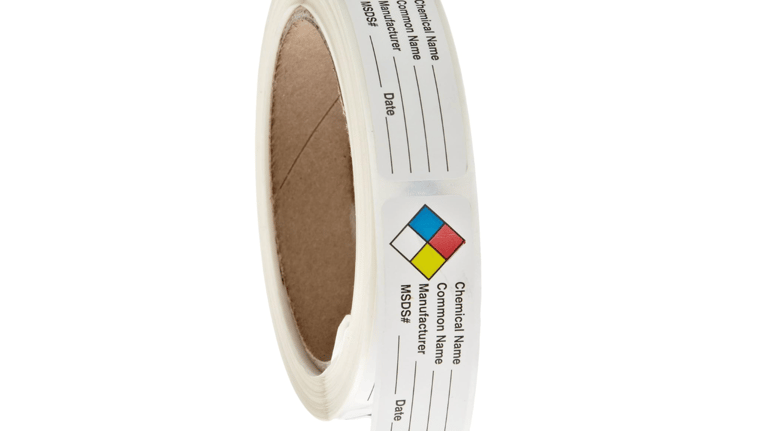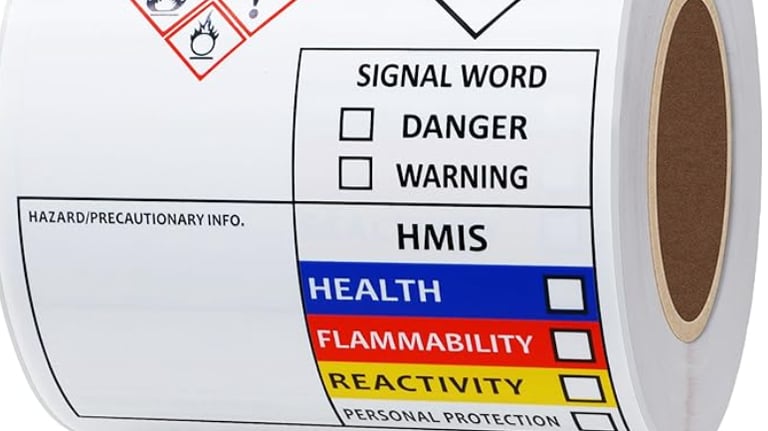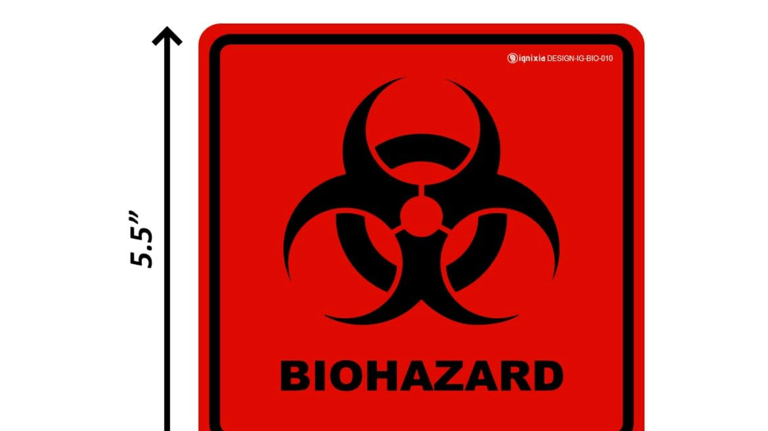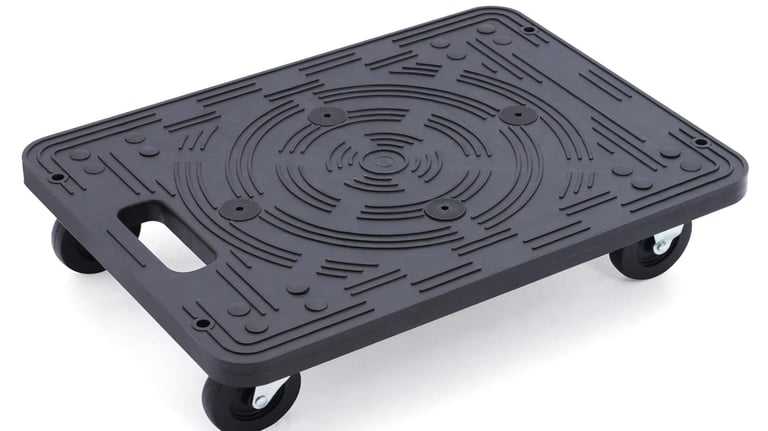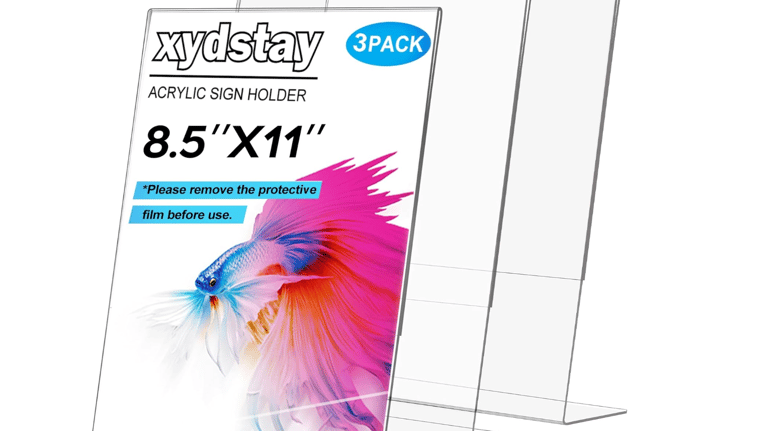Recommended Supplies
Links to examples of OSHA compliance supplies you may need for your practice discussed during your training and walkthrough.
Florida Law poster for Occupational Safety and Health Act
This Florida Specific Law poster informs workers of their rights under the Occupational Safety and Health Act.
Refrigerators/Freezer Thermometers
Medications and other temperature-controlled items must always be kept at the right temperature. These devices monitor your refrigerators/freezers, even while you're away, to avoid issues.
What if your power goes out overnight? These devices can alert you to the issues and temperature variations so you can ensure the viability of your medications.
Dosimeters
The Occupational Safety and Health Administration (OSHA) requires employees to wear dosimeter badges, also known as X-ray badges, in any environment where they may be exposed to radiation. Dosimeters are used to measure and record the amount of radiation an individual receives as part of their job.
Sharps Disposal Containers
The Occupational Safety and Health Administration (OSHA) requires sharps containers to reduce the risk of injury and infection from contaminated sharps. Sharps containers can help limit exposure to bloodborne pathogens like HIV, HBV, and HCV, which can spread through improper contact with contaminated sharps.
OSHA requires sharps containers to be: puncture-proof, leak-proof, closed, clearly labeled, color-coded red, and kept upright.
OSHA requires the use of disinfectants primarily to protect workers from exposure to bloodborne pathogens and other potentially infectious materials (OPIM). This is mandated under the Bloodborne Pathogens standard discussed in your training.
Disinfectants
For Use In "Critical" Areas
For use to disinfect medical equipment, surface areas inside treatment areas, sterilization of lab rooms and consultation rooms.
For Use In "NON-Critical" Areas
For use in non-critical areas such as front desk, lobby area, and waiting rooms
Spill Kits
Spill Kits are considered a best management practice. Spill kits can help reduce the risk of slips, trips, falls, chemical exposure, and environmental impacts.
Eye Wash Stations
Occupational Safety and Health Administration (OSHA) requires emergency eyewash stations in workplaces where employees may be exposed to corrosive materials, or where there is a chance of eye splashes from solutions containing 0.1% or more formaldehyde. Eyewash stations are also required in HIV and HBV research labs and production facilities.
Sanitation Containers
Containers used to house utensils/tools during the sanitation/Disinfection process
Mounting Brackets/Storage Racks
The Occupational Safety and Health Administration (OSHA) requires mounting brackets or storage racks to be installed correctly and securely to protect employees from harm and to prevent hazards
Signage
The Occupational Safety and Health Administration (OSHA) requires safety signs in the workplace to help prevent accidents and injuries by quickly drawing attention to potential hazards. OSHA regulations standardize the use, design, and wording of safety signs, including their color, pattern, shape, and typography.
Data Labels/Warning Stickers
OSHA standard requires that information about chemical hazards be conveyed on labels using quick visual notations to alert the user and provide immediate recognition of the hazards. The label provides information to the workers on the specific hazardous chemical.
The items on this list are suggestions only. We recommend doing your due diligence for what is applicable and best for your business. Please use your best judgment when purchasing products online. OSHA Medical Training, Inc. is not responsible for any issues with items purchased from this list.
Holders
Training
Providing comprehensive OSHA compliance training for various industries.
P.O. Box 941274, Miami, FL 33194
Jenny@oshamt.com
786-399-5588
© 2025 OSHA Medical Training, Inc. All rights reserved.
